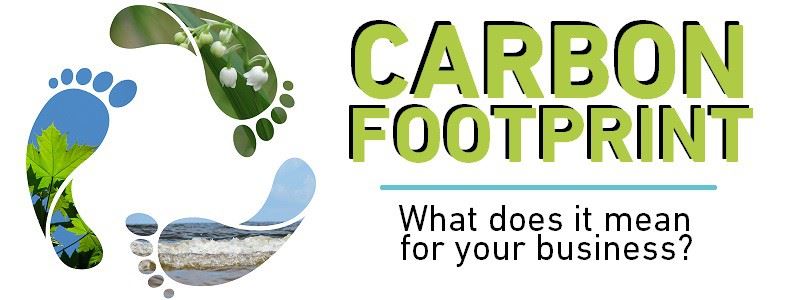It seems “carbon footprint” is a household term nowadays – but does everyone actually know what it means?
In the simplest terms, your carbon footprint is the amount of carbon dioxide you release into the atmosphere through your behaviour and activities – so I have my own carbon footprint and you have your own carbon footprint. Larger entities have a carbon footprint too, like the supermarket you shop in, the region you live in and the business you run.
Why is Your Carbon Footprint Important?
Climate change is the large-scale, long-term shift in our eco-system’s weather patterns and average temperatures. The evidence for Earth’s rapid climate change is compelling – just look at the 11,000 years of stable climate before the Industrial Revolution.
Human actions have increased the release of carbon dioxide and other greenhouse gases into the atmosphere, leading to rising global temperatures and long-term changes to the climate. As the problem rapidly increases, so do the negative effects on the climate system, ecosystems and people, including:
- Extreme weather events – heatwaves, droughts and floods are more intense and frequent due to climate change
- Rising ocean levels – higher temperatures have led to melting glaciers and ice sheets, causing ocean water levels to rise (thus expanding and taking more space)
- Ocean acidification – known as the “evil twin” of climate change, this is when the water becomes more acidic from absorbing carbon dioxide
These effects can lead to:
- Flooding – coastal regions are particularly at risk as sea levels rise
- Food insecurity – high temperatures, extreme weather events, flooding and droughts damage farmland, limiting crop growth and making yearly yield uncertain
- Conflict and climate migrants – climate change is a stress multiplier: it can worsen existing problems (e.g. lack of food, water or shelter) and cause people to fight over resources or to migrate
- Damage to marine ecosystems – rising ocean temperatures, ocean acidification and ocean anoxia (lack of oxygen) are damaging to marine life, from fish to coral reefs
We’re all responsible for minimising our negative effects on this planet, and these effects can be reduced more with the help of larger enterprises like businesses.
A business’s carbon footprint is part of its identity – are you proud of yours?
How to Reduce Your Business’s Carbon Footprint
This advice applies to businesses on both ends of the spectrum: those who have no idea about carbon emissions and do nothing to regulate them, to those who are proud of their low carbon imprint.
So, whether you feel carbon-good or carbon-bad, check out these tips and see what your business could be doing to bring those emissions down:
- Minimise energy usage – this is the big one, but remember: the cheapest form of energy is the energy you don’t use! Start with the simplest things, like making use of natural light, converting to energy efficient water coolers and boilers and incentivising staff to cut down on wasting energy.
- Reduce, reuse, recycle – decrease wasteful consumption and make purchasing habits eco-friendly across your business. Remember to assess your Waste Management and put the right recycling services in place wherever possible.
- Print as minimally as possible – cut down paper, ink and energy usage by digitalising your business as much as possible. When you do need to print, make sure documents are disposed of responsibly and in line with GDPR guidelines.
- Remove fossil fuels from your business – these are the main cause of greenhouse gas emissions, so it makes sense to switch to renewable sources. Check out government schemes like the Renewable Heat Incentive, which financial supports green-heat tech.
- Switch to electric vehicle fleets – sounds like a big step, we know, but upgrading to electric cars will cut your fleet costs, from fuel to maintenance (you’ll also be exempt from clean air zone charges!)
- Make sustainability a priority – you won’t see positive effects if you don’t commit to the cause, so view your carbon footprint as a primary part of your business that needs regular consideration and make sure everyone in the business understand the importance of this.

